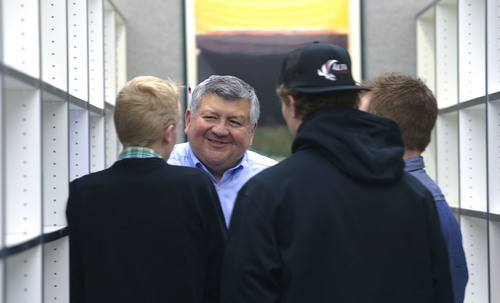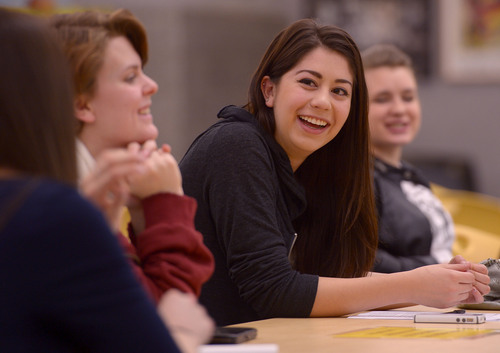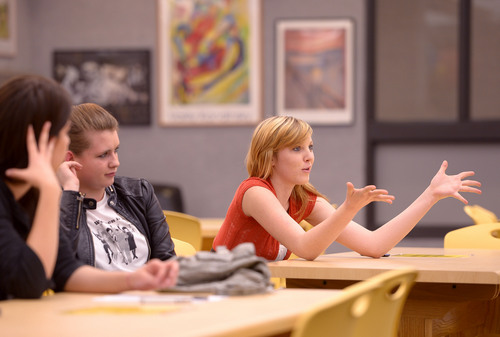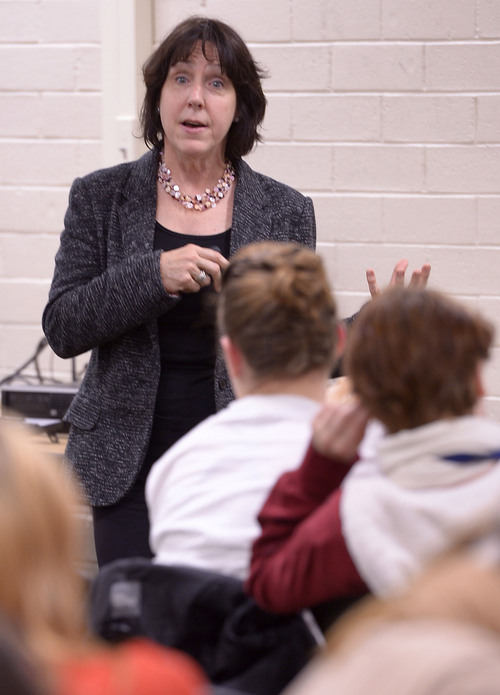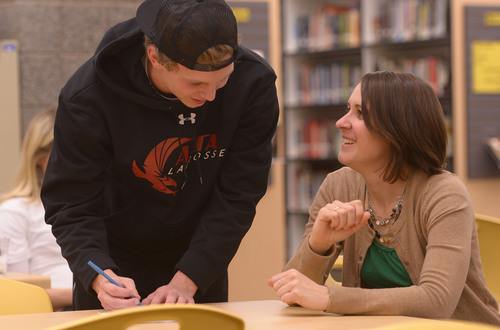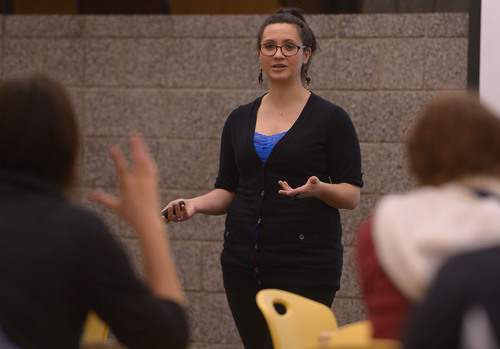This is an archived article that was published on sltrib.com in 2014, and information in the article may be outdated. It is provided only for personal research purposes and may not be reprinted.
Sandy • As revolutions go, the one gathered Saturday morning in an empty Alta High School was a low-key one.
Two dozen women and teen girls — students, alumnae, moms and teachers — held discussions about the low number of women in positions of power and what can be done at the high school level to change that.
The event was the Women In Action workshop, a first-in-the-nation program being developed by Alta High and the Center for American Women and Politics (CAWP) at Rutgers University in New Jersey.
Officials at CAWP had been trying to promote the notion of women as leaders but realized that attitudes of many college students were already fixed, said Kiersten Draper, an assistant principal at Alta High.
"They had to start looking at girls sooner," Draper said.
So when Rique Ochoa, an Alta High social studies teacher, met CAWP's director, Debbie Walsh, at an education conference, they teamed up to start a national high school program to encourage girls to take on leadership roles — both in and out of politics. Alta is the pilot program for that effort.
"This isn't about feminism. It's about being able to empower our girls," Draper said.
Besides talk about political opportunities, speakers Saturday gave talks about college graduation rates, domestic violence and community lobbying.
Walsh, in a presentation of CAWP's research, stressed the importance of women in government.
"Women make a difference when they're there," Walsh said. "Government works better when they're there."
There are more women in Congress than ever before, Walsh said, with 99 of the 535 House and Senate seats, or 18.5 percent, held by women. In state legislatures nationwide, 24.2 percent of the seats are filled by women — a level that has more or less plateaued since 2008, Walsh said.
In Utah, 16.3 percent of state legislators are women, though Walsh noted that having a female Speaker of the House, in Provo Republican Becky Lockhart, is a rarity nationwide. What's not so rare is that Utah has no women in Congress — a statistic it shares with 14 other states, including Walsh's home state of New Jersey.
What's keeping more women from running for office, Walsh said, are attitudes about the perceived roles and stereotypes assigned to men and women — often by women themselves.
According to studies conducted by CAWP, young women are less likely to imagine themselves becoming president or a member of Congress — and more likely to think themselves underqualified to run for office.
There's often a difference in what men and women think running for office can achieve, Walsh said.
"Men run to be somebody. Women run to do something," she said.
Allison Tolman, a Brigham Young University freshman who graduated from Alta last year, said women considering politics can be too demanding of themselves.
"We measure ourselves against these ideals, and men measure themselves against the actual candidates they're running against," Tolman said.
Many women who decide to run for office, Walsh said, get their start in community activist groups like the League of Women Voters. "They see legislators and think, 'If these guys can do it…' " Walsh said, as the end of her sentence was drowned out by laughter.


